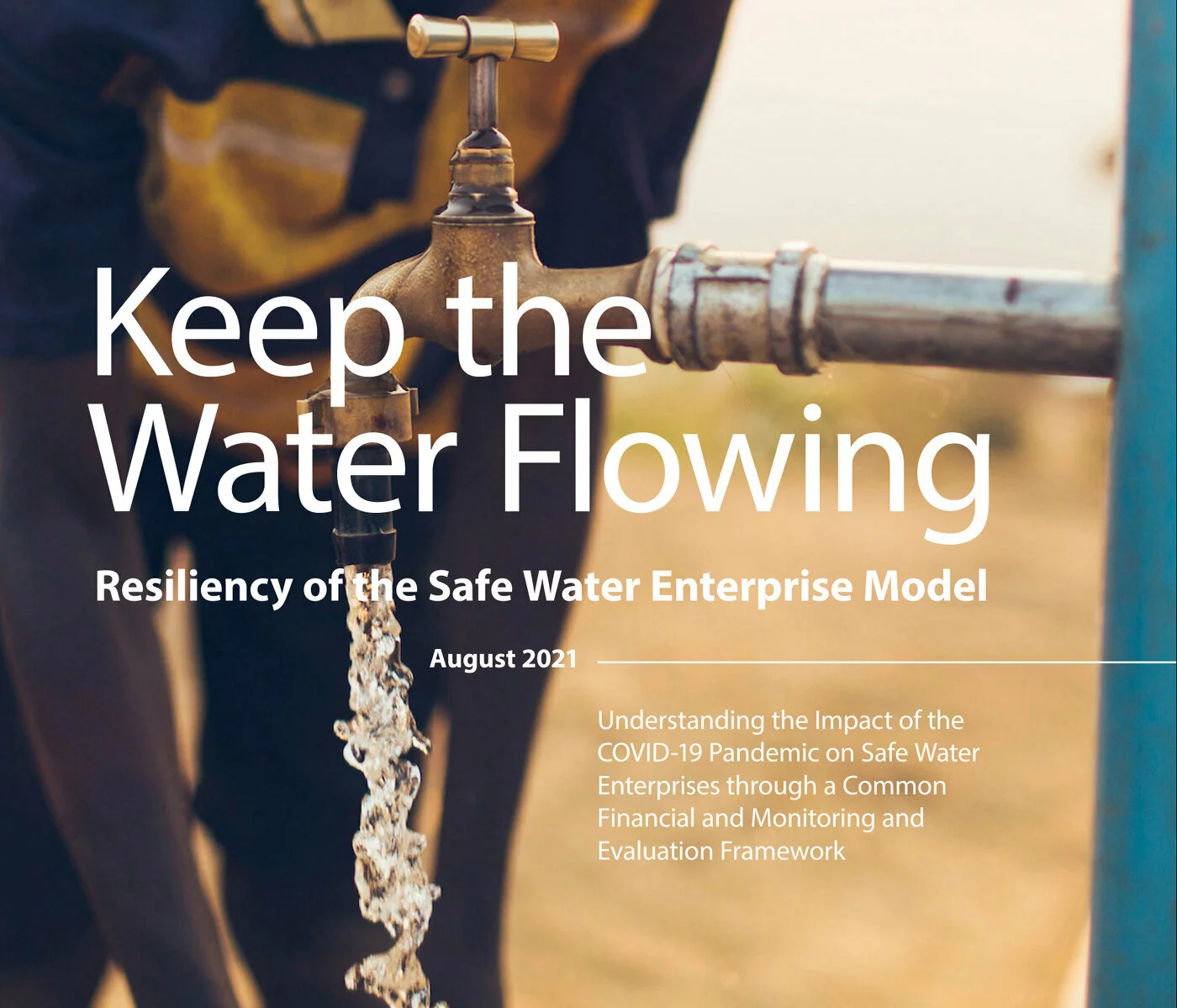New Report on SWE COVID Resilience
The COVID-19 pandemic is testing institutions throughout the world. Access to safe water has never been more important, particularly with handwashing as a frontline defense against infection. Water service providers are enduring greater challenges due to increased supply demands and operational constraints, as well as health and safety requirements. Safe water enterprises (SWEs), in particular, are facing significant difficulties as they operate in low-income communities with resource constraints. This crisis calls for unprecedented collaboration and required implementers and their partners to act quickly to keep the water flowing and meet demand.
In conversation with The World Bank and the Osprey Foundation as part of Stockholm International Water Institute’s virtual World Water Week 2021, Safe Water Network and members of the global Community of Practice (CoP) for small water enterprises (SWEs) presented a new joint report, “Keep the Water Flowing,” on the resiliency of the decentralized small water enterprise model in the face of COVID-19 and how implementers, communities, and donors collectively responded to keep water flowing. Members of the Community of Practice for SWEs include Jibu, Untapped, Water4, Water for Good, Water for People, and Water Mission. Learn more about the global CoP for SWEs on our Partners page.
We found that SWEs not only persevered through this pandemic, but certain characteristics of the SWE model have primed implementers for resiliency:
- Field teams rose to the challenge and kept stations running, demonstrating the SWE model of centralized management and maintenance as not only a solution for rural water supply failure but also a resource for problem-solving in times of extraordinary difficulty.
- Local capacity building developed strong communities, helping with implementation of new policies and keeping stations running when field teams were restricted by travel bans.
- Openness to digital technology empowered implementers to utilize remote monitoring and digital transactions to limit infection and adapt to travel restrictions.
- A network of donors acted swiftly to provide capital for new resources and expanded service.
